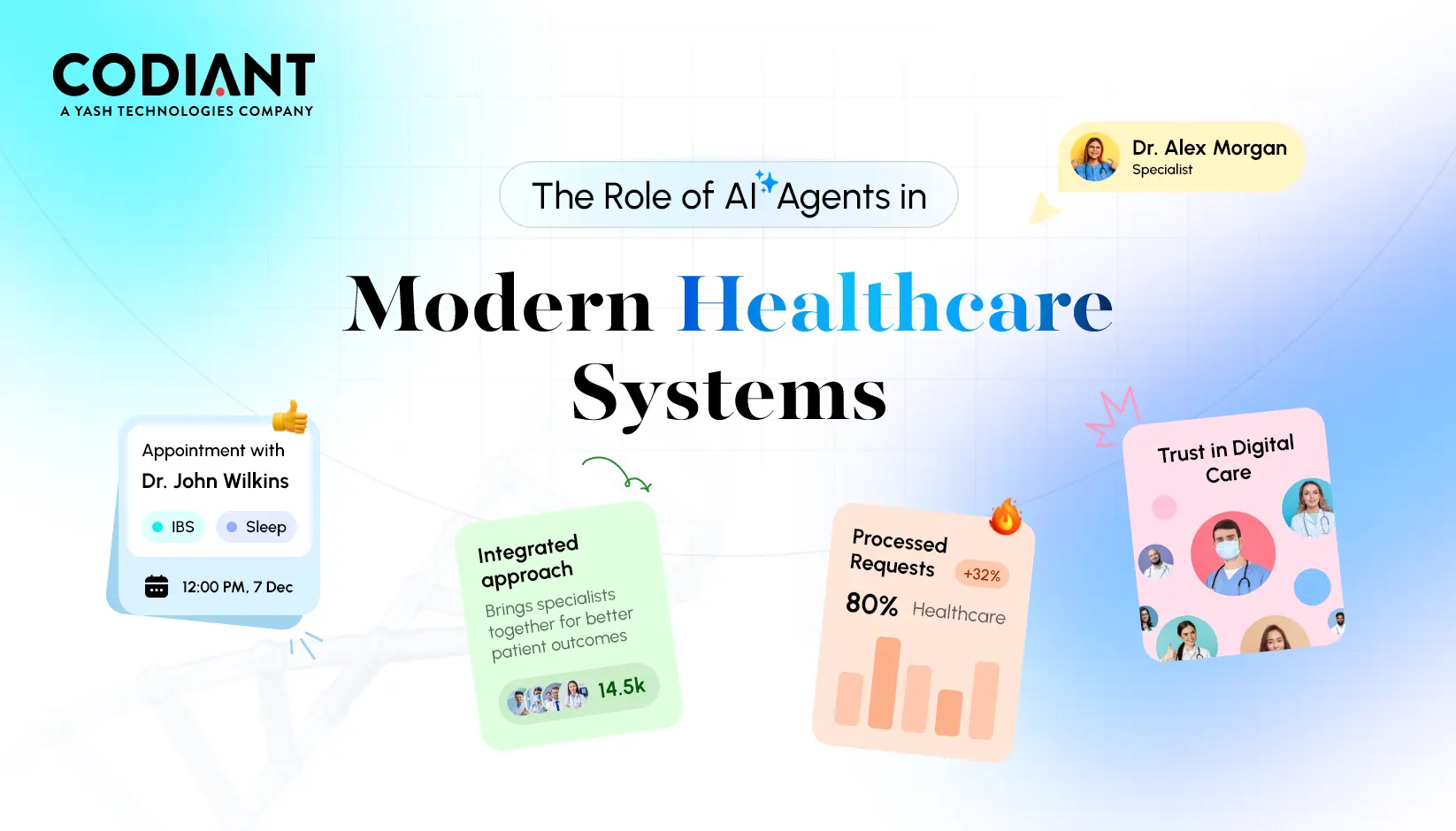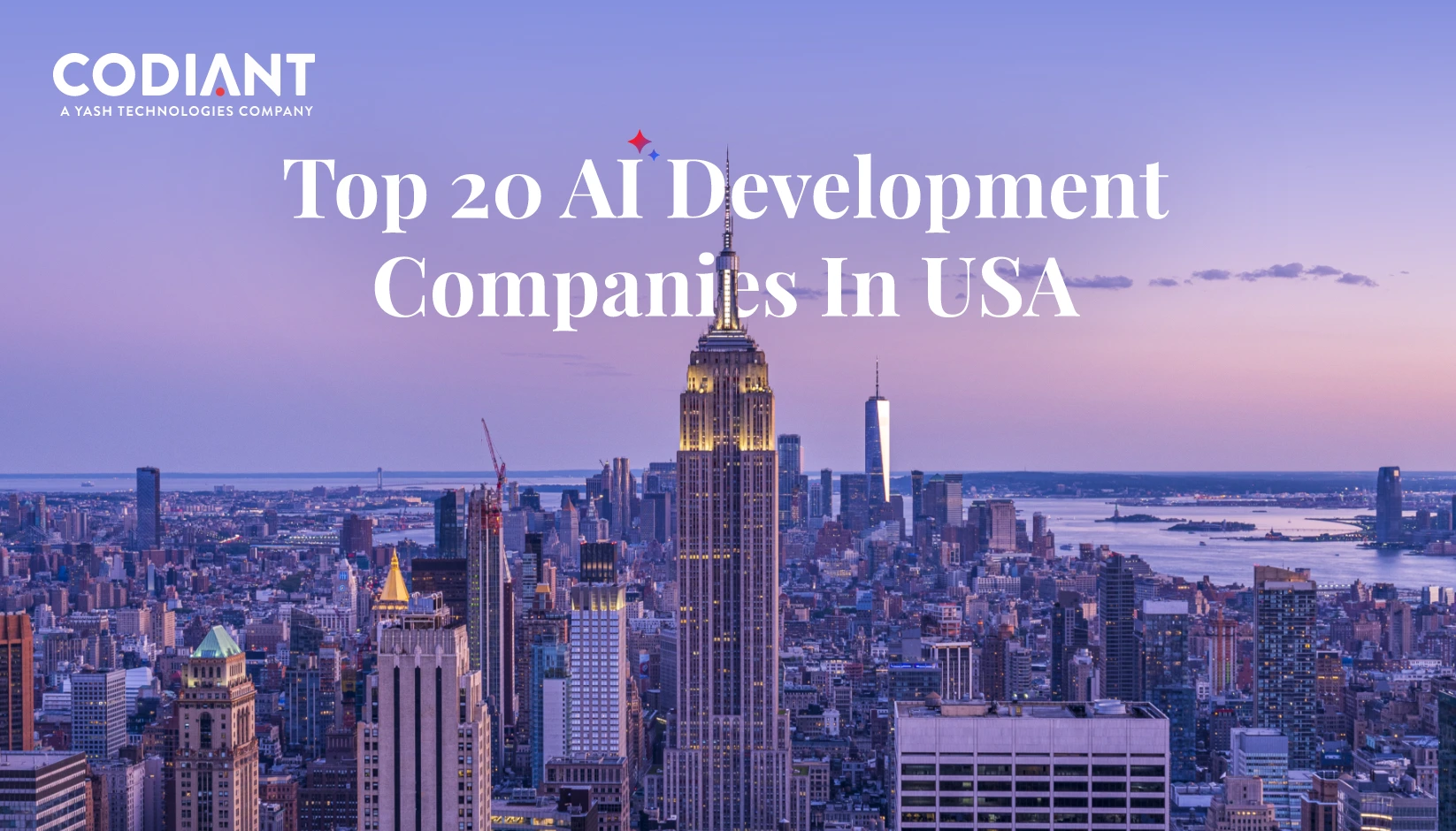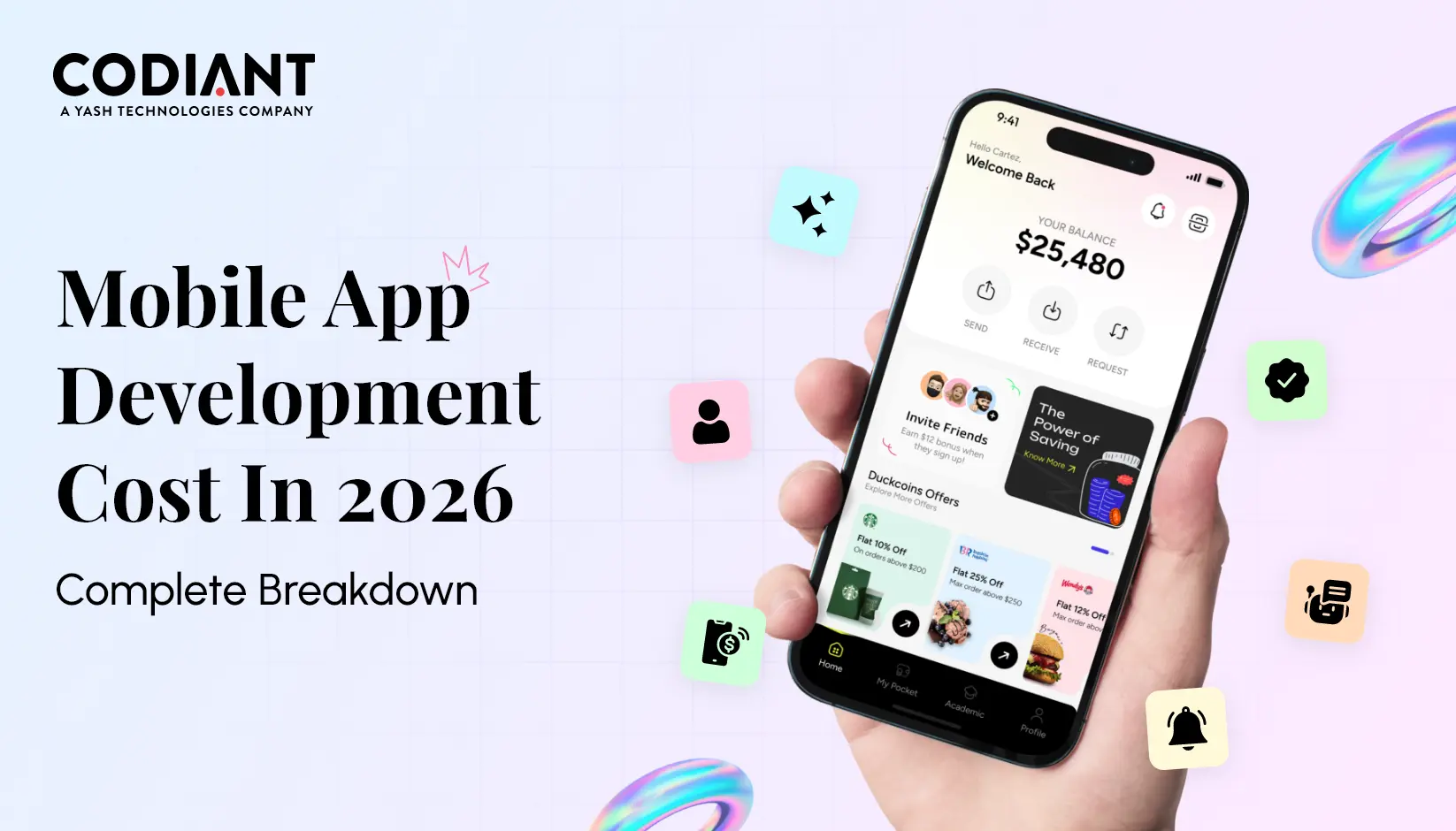Evolution of SEO: The Impact of AI and Predictive Analytics
Table of Contents
Subscribe To Our Newsletter

AI and predictive analytics are changing SEO in exciting ways. The days of keyword stuffing and link building are long gone. Search has progressed from simply matching keywords to understanding the meaning behind words and phrases. Now, smart algorithms are helping to realize user intent, enhance content relevance, and deliver exceptional user experiences.
To grow yourself and keep up with the latest SEO trends, you should be familiar with the modern AI tools and algorithms that are in use. You should learn how they are changing the process of search engine optimization and impacting the ranking of a website.
Likewise, AI-powered algorithms including Google’s RankBrain have improved SEO practices. They made search results more accurate and personalized using ML and NLP. With machine learning, it becomes easy to recognize what users are searching for and provides great search results.
In this blog, we discover how AI is changing SEO, offering new chances for businesses to boost their online presence and increase their visibility.
Impact of AI & Predictive Analytics in SEO
AI and predictive analytics are revolutionizing SEO in several ways! As an expert in marketing technology, you should adapt SEO techniques to align with tech advancements and compete in the market.

Read how AI has affected SEO:
1. Predictive SEO
Predictive analytics uses past data and current trends to predict future search engine changes and user behavior. This helps SEOs stay ahead and adjust their strategies. Tools like Google Trends and social listening platforms provide useful data for this analysis.
In addition, it uses Artificial Intelligence for SEO to evaluate current strategies and forecast the results of future changes. This helps strategists make informed decisions and ensure that each step is well-planned for better SEO outcomes.
2. Better Keyword Research
Earlier, the keyword research was heavily dependent on search volume data. But, with the AI-powered tools in the trend, the keyword research goes beyond this and focuses on search intent, semantic relationships, and user behavior. These tools can scan huge amounts of data, social media trends, competitor content to recommend effective keywords for SEO strategy. Among these tools, Marketing lad stands out for its ability to provide actionable keyword insights and real-time SEO recommendations.
Using predictive keyword analysis, the marketing specialists can forecast future search trends. AI algorithms analyze past search data and industry trends to predict which keywords might become popular. This helps marketers create content strategies that stay ahead of the curve, gaining a lead in search engine rankings.
3. Content Creation and Optimization
Google like search engine, focuses on Experience, Expertise, Authoritativeness, and Trustworthiness (E-E-A-T) to encourage high-quality content creation. Using Natural Language Generation (NLG), it becomes easy for systems to produce readable content including articles, blogs, and web pages.
These AI-based systems grasp language nuances and SEO needs, allowing them to create content that is search engine-friendly and human-like for readers. This approach offers the dual benefits of increased engagement and visibility. However, human intelligence is needed to check that the content remains informative, engaging, and consistent with the brand’s voice.
To make AI-generated text sound more authentic and natural, many professionals use an AI humanizer that refines sentence flow, removes robotic tone, and makes content sound completely human-written. This ensures the perfect balance between efficiency and authenticity in digital content creation.
AI enhances content engagement by providing personalized recommendations. It examines user behavior, past interactions, and demographics to suggest content tailored to individual preferences. This approach not only boosts SEO results by improving user interaction metrics but also enhances the overall user experience on the website.
4. Personalized User Experience
AI in SEO optimization services enhances website performance, improves rankings, and personalizes user experiences through intelligent AI-driven support systems and chatbots. The AI-driven systems automate user interaction and make sure that visitors have a seamless experience on your site.
AI tools can check your website’s speed, mobile-friendliness, and user behavior to find areas for improvement. These tools can also help with queries and guides to help users. This is how AI makes your site smarter and easier to use, offering a personalized user experience. Furthermore, AI chatbots provide instant support and answer user questions, boosting overall satisfaction. AI Ad generator enhances this process by helping businesses create targeted, engaging ads automatically, ensuring your website and marketing efforts work seamlessly together.
5. Voice Search Optimization
Voice search has been gaining popularity for 3-5 years. AI is essential in optimizing SEO for voice search. By understanding NLP and conversational queries, AI can personalize content to match the way people speak when using voice assistants.
AI-powered tools analyze voice search queries, find out long-tail keywords, and draft content strategies accordingly. AI structures content in a way that it can answer directly and improves the chances of appearing in featured snippets. Moreover, AI tools track voice search trends and user intent, allowing for continuous refinement of SEO strategies to keep up with evolving voice search behaviors.
Latest AI & Predictive Analytics Tools for SEO
AI tools are transforming SEO by using machine learning to analyze search patterns, predict trends, and provide insights. They automate keyword research, optimize on-page elements, and enhance link-building — making them especially valuable for any SaaS link building agency looking to scale results efficiently.
For professionals seeking collaborative opportunities to build high-quality backlinks, joining a link building community can be highly beneficial. Such platforms, including SEO Reseller networks, offer specialized B2B SEO strategies and provide access to vetted groups of SEO experts who regularly exchange strategies and backlinks.

Have a look at the top AI-powered tools that give more accurate insights and support in SEO:
Content Creation
- Grammarly: Check grammar and style.
- Editpad: Improve content readability and clarity.
- ChatGPT: Create unique and informative content.
- SEOMagnifier: rewrite the articles free of cost within seconds
- BuzzSumo: Research content and find trending topics.
- Lumen5: Convert text into engaging videos.
- Hemingway Editor: Refine content for clarity and coherence.
Keyword Research
- Google Keyword Planner: Find keyword ideas and search volumes.
- Ahrefs Keywords Explorer: Do in-depth keyword research and analysis.
- SEMrush: Discover keywords and competitive analysis.
- Moz Keyword Explorer: Suggest keywords and do SERP analysis.
- Ubersuggest: Generate keyword ideas and insights.
SEO Analysis
- SEMrush: Perform site audit, keyword tracking, and competitive analysis.
- Ahrefs: Perform complete SEO audits and backlink analysis.
- Moz Pro: Do SEO tracking, site audits, and keyword research.
- Screaming Frog SEO Spider: Crawl websites and identify SEO issues.
- Google Search Console: Monitor site performance and do search analytics.
- Serpple: AI-powered SEO tool offering daily keyword rank tracking, competitor analysis, and comprehensive SEO audits.
Website Optimization
- GTmetrix: Check site performance and give optimization recommendations.
- Pingdom: Monitor website speed and performance.
- Google PageSpeed Insights: Analyze and improve page speed.
- WebPageTest: Do in-depth performance testing and give optimization tips.
- Optimize: Perform A/B testing and conversion rate optimization.
Chatbots
- Drift: Do real-time customer engagement and lead generation.
- Intercom: Render customer support and personalized messaging.
- Chatfuel: Develop AI-powered chatbots on Facebook Messenger.
- ManyChat: Create interactive chatbots for various messaging platforms.
- Tars: Design chatbots for enhancing user interaction and conversion rates.
The Future of SEO
AI is shaping the future of SEO to be more conversational. The future of SEO is trending towards a more user-centric, ethical, and technically advanced approach. AI will play a bigger role in SEO, offering precise analysis of search patterns, user intent, and personalized results.

The integration of AI and predictive analytics would transform the whole SEO scenario and enhance overall search engine rankings. AI/ML algorithms might become more intelligent in analyzing data patterns and refining SEO strategies for more relevant experiences.
In the future, we can expect many things from AI in SEO! It can:
- Enhance data-driven SEO for quick, highly secure and private searches.
- Filter out harmful or misleading content to ensure a safer browsing experience.
- Enhance website interactions by giving personalized experiences and quick responses.
- Enable real-time optimization of SEO strategies based on current performance metrics.
- Forecast SEO trends and algorithm changes to stay on the top in search rankings.
Summing Up
In the evolving landscape of digital marketing, artificial intelligence continues to reshape how businesses approach SEO. While automation enhances productivity and streamlines processes, it’s the strategic involvement of experienced professionals that drives sustainable growth. AI can support content creation, keyword analysis, and user experience optimization but it cannot replace human creativity, intuition, and judgment.
Success in modern SEO lies in a balanced approach: leveraging technology while staying rooted in user intent, ethical practices, and continual adaptation to algorithm updates. With a deep understanding of both AI capabilities and search engine behavior, Codiant delivers solutions that are not only technically sound but also strategically aligned with business goals.
For organizations aiming to scale intelligently, investing in AI development services in USA provides the tools needed to stay ahead, while the real advantage comes from how effectively those tools are applied.
Remember: The future of SEO is lively, and those who harness the power of AI and predictive analytics will be well-equipped to thrive in the flourishing digital world.
Frequently Asked Questions
AI will become a major portion of SEO after 2024 and beyond. It will lead to more personalized web experiences, effective content analysis, and a deeper understanding of user behavior. As AI advances, it will push the limits of digital marketing strategies and set new standards in the market.
The main problem with AI is bias, where algorithms may favor some content over others. This affects the visibility of a site on search engines. It is significant to make sure that AI systems are well-regulated and unbiased.
AI in SEO analytics provides real-time data, better accuracy in predicting traffic and trends, and deeper insights into user behavior and content performance. This leads to more effective strategies and better SEO results by spotting patterns that traditional methods might miss.
AI can draft basic content and create frameworks, but it can’t replace human creativity. While AI excels at generating keyword-rich articles, human writers add unique perspectives, emotions, and engaging stories. AI is great for scaling content production, especially for straightforward texts.
AI revolutionizes keyword research by automating and refining the process, uncovering valuable keywords that traditional methods might miss. AI-powered tools analyze search trends, user behavior, and web content to provide a broader range of keyword suggestions, making your SEO strategy more effective.
Featured Blogs
Read our thoughts and insights on the latest tech and business trends
How AI Agents Transform the Healthcare Sector?
- January 19, 2026
- Artificial Intelligence
In a Nutshell AI agents in healthcare go beyond automation by acting autonomously, learning continuously, and orchestrating workflows end to end not just generating insights. Agentic AI shifts healthcare from reactive to proactive, enabling early... Read more
Top 20 AI Development Companies in USA in 2026
- January 14, 2026
- Artificial Intelligence
In a Nutshell: The AI development companies USA businesses trust most are those that deliver production-ready AI, not just proofs of concept or demos. The best AI development companies USA combine AI engineering with full-stack... Read more
How Much Does It Cost to Develop an App in 2026? A Detailed Guide
- January 12, 2026
- Mobile App Development
If you’re planning to launch an app in 2026, you’re probably asking the same question every founder, product head, and business owner asks first: how much does it cost to develop a mobile app in... Read more





